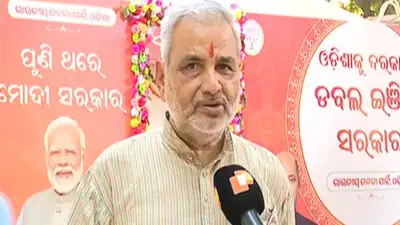Recommended Stories
Speaking after the release of `Discussion paper on Snow and Glaciers of Himalays` prepared by Space Application Centre (SAC), a part of ISRO, Ramesh said here, "There is no alternative to our science, as science is politics in climate change".
"We should have more and more studies by our scientists on climate change and they should be published," Ramesh said adding, "Or else, we will be led by our noses by western scientists, who has less science on their mind and more politics," Ramesh said addressing the scientific community here.
Ramesh made these statements referring to the controversy over report of Intergovernmental Panel on Climate Change (IPCC), led by R K Pachauri, which said that Himalayan glaciers will melt in next few years.
"At that time (when IPCC had declared that Himalayan glaciers will melt fast) also, I had said three points: most Himalayan glaciers are retreating, some are advancing and rate of retreat glaciers is also slowing," Ramesh said.
"Now, this study-paper prepared by the SAC says 75 per cent of Himalayan glaciers are retreating, eight per cent are advancing and 17 per cent are stable," Ramesh said.
"This means that the rate of melting of glaciers is not as fast as if they would entirely disappear in 2035 as said by that study. They will be there for many more years," Ramesh said.
"This is an extensive study conducted by the SAC scientists team for over the last 15 years and they have studied 2190 glaciers, which is a robust sample. Some reports are just published after studying one or two glaciers," Ramesh said.
Ramesh also released the `National Wetland Inventory and Assessment`, prepared by the SAC at the same function.
"Wetlands are very important to our ecosystem. It is often not recognised that the wetlands have ecological as well as social value," Ramesh said.
With the release of the wetland inventory by SAC, we will be able to know about the exact number and areas of wetlands, which comes to about 3 per cent of total land area of the country.
"Wetlands are under threat from the construction industry, as well as all kind of other encroachers, as they are easy targets," he further said.
"We have formed a Centre Wetland Regulatory Authority (CWRA) and have included 25 wetlands in it for protection.
Now, with this new report by SAC we can include more and more wetlands under the CWRA," Ramesh said.
Ramesh also pitched for frequent satellite mapping of forests cover of the country. "We, in India, conduct mapping of over forest covers every two years, while in Brazil they do it every six months. We should do it at-least every year. We should map our critical forest areas like western ghats and region of north-east every six months," he said.
He also said that high erosion coastal zones of the country will also be mapped.












